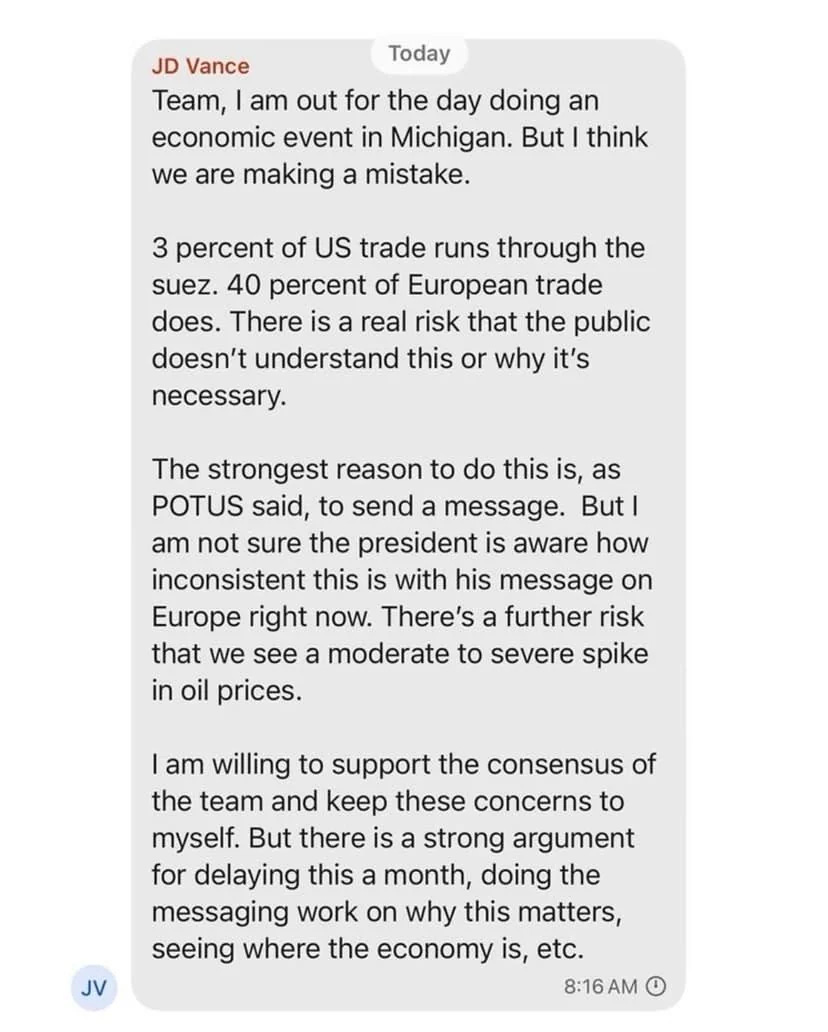And now I’m trapped, and I can’t look away.
The facial expression they got this person to use for her author photo: correct. Points to the photographer.
Moira Donegan is a translation machine. She takes facts and turns them into feelings, febrile and florid, inventing intent that she projects into other people. It’s fascinating to watch her do this. Just three paragraphs will show this with such richness that you may need to walk it off afterward, like you’ve eaten a whole plate of cake:
It’s a workplace discussion, an official informing other officials about things that will happen. It followed the planning and debate; this is the okay, guys, as discussed, we’ll get started this afternoon stuff. You can read the whole thing here, in a series of screenshots without commentary, so you can just see what they actually said.
So. Look closely at what Moira Donegan does with this discussion, because you’ve seen this behavior elsewhere.
“The defense secretary, Pete Hegseth, chimes in, clearly thinking he’s supposed to be the center of attention.” His I’ll-lead-the-discussion attitude projects “the cringing eagerness of a personality hire: he wants to be seen talking, but doesn’t really have much to say.”
Ladies and gentlemen, answer for yourselves: In a discussion with officials outside the Department of Defense, why is the Secretary of Defense leading a discussion about an effort being undertaken by the Department of Defense? Why is he speaking? Is it because of his psychopathology, his sad and empty desperation as a wounded man to seem like the center of attention? Or is it more like, I don’t know, the fire chief doing a lot of talking during a big fire? Is the best explanation here psychological, or is the best explanation structural, the military guy talking about the military stuff to people outside the military?
In other news, Vice-President JD Vance “does not seem to feel he has enough clout to actually oppose the strike, however, undermining his own complaints with caveats that he will defer to others.” Again, this is what he feels, not a fact in the real world. The President of the United States has ordered X; the Secretary of Defense, the president’s direct subordinate, is acting on those orders; and the vice-president, who has no place in the chain of command, obscurely feels in his broken soul that he doesn’t have enough clout to oppose the direct orders of the people who actually have formal command authority over the operation.
Moira Donegan 101: There’s a formal, structural, institutional explanation for the observed behavior, but she explains it as a display of personal insecurity. The Vice-President of the United States “does not seem to feel” that he commands a military operation; therefore, he is sick in the head.
Further, Vance “claims to be worried about public opinion on the issue,” because why on earth would a politician ever be actually worried about public opinion so he must just be posing, “and complains that an attack on the Houthis would provide economic benefits to Europe, who he wants to punish for some reason.” Vance, and Trump, have explained this exact point, repeatedly and explicitly accusing Europe of free-riding on American security guarantees. Here’s what Vance actually said in the Signal discussion:
Every word of that is rational and coherent. With numbers, for crying out loud, although the numbers he used are disputed. He clearly suggests the view that the Houthi attacks on shipping in the Red Sea are primarily a European security issue, and therefore a problem that should be left to the Europeans, which is entirely consistent with the administration’s policy and messaging. He’s articulating an intellectually steady view that comes from the world of fact; Moira Donegan tells you he’s lashing out incoherently, because of the same deep psychological wounds that make him weak and deferential. She’s insane, so she thinks everyone else is insane.
Then she says that everyone in the discussion is trying to avoid “thinking too hard about what they’re actually doing – which is killing people,” and she does this right after showing that Vance is arguing for restraint and recalibration. Somebody in the conversation said X, which proves that everybody in the conversation is incapable of thinking about X.
There’s plenty more to find in this funhouse-mirror journalism, and you can go dig up your own nuggets of raw madness if you’re game for the hunt. Note that she never notices what she just said, from sentence to sentence: Stephen Miller is “Trump’s surrogate in the chat,” and therefore represents the authority of the commander-in-chief; also, she depicts Miller as soliciting “shows of deference,” and then concludes that among all the weak broken losers, “Everyone defers to Miller immediately.” So everyone in a hierarchical, formal command structure defers to the statements of the president’s proxy, which proves…a psychological point. Everyone defers to the commander, which demonstrates their craven weakness as small stupid people.
And so, yet again, the eternal question: Would you trust this person to explain or describe anything at all to you?







For a sane view from a former US Navy officer who regards the Signal error as significant, and the product of poor discipline:
https://cdrsalamander.substack.com/p/the-signal-i-was-waiting-for
People do trust her. That’s the real crazy shit right there.